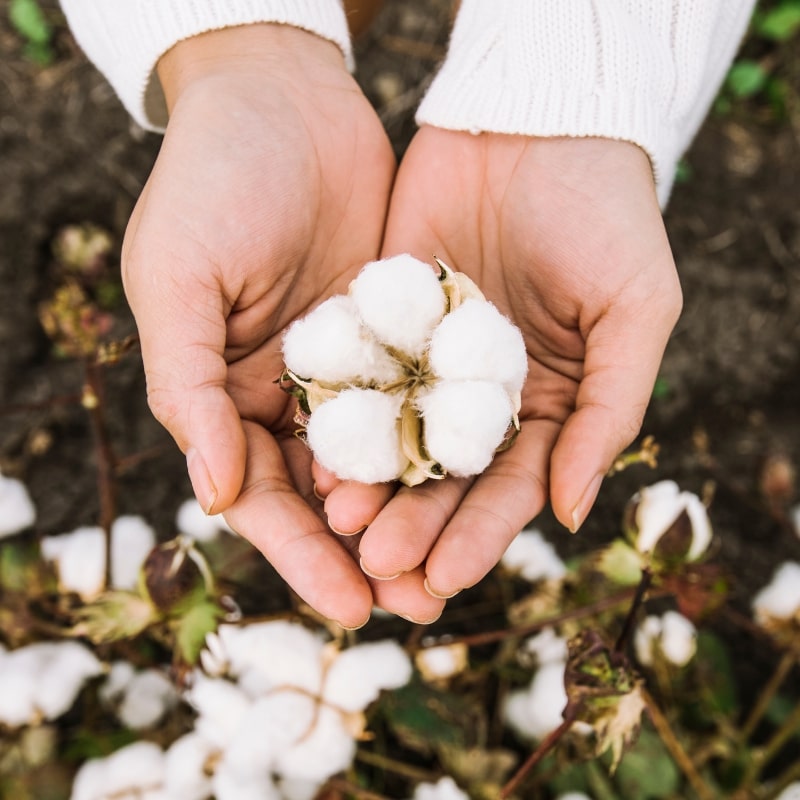
A Guide to Organic Cotton

History shows that cotton was grown, spun and woven into rough cloth from as far back as 3000 BC in the Indus River Valley region. Archaeological findings suggest that cotton has been cultivated in this region since around 5000 BC. Scientists have also found cotton bolls and woven cotton cloth in Mexican caves that date back to the same period.
Today, cotton is a widely used commodity and cultivated around the world. It is sometimes known as ‘White Gold’ too and is widely used in making towels, sheets, garments, etc. A growing demand for this natural fiber has led to the inclusion of GMO cotton seeds for cultivation. Unfortunately, this type of cotton requires an alarming amount of water, making it a non-sustainable type of cultivation.
Organic cotton on the other hand, is grown using non genetically modified seeds and offers more sustainable solutions. This type of cultivation involves minimal dependence on chemicals which end up destroying soil health for the long run. Since organic cotton farming practices are aimed at conserving nature, pesticides are commonly avoided. It has been found that agricultural land that is cultivated without the use of chemicals, tends to retain its fertility much longer than farms where chemicals are frequently used. Hence, organic cotton farmlands have a longer lifespan.
While growing GMO cotton may have some benefits, one should keep in mind that it requires around 10,000 liters of water to produce just 1kg of GMO cotton. On the other hand, organic cotton requires almost 88% less water to grow when compared to GMO cotton. The sad news, however, is that only 1% of the cotton grown today is organically-grown cotton. More investment in this sustainable form of farming is needed.
The only downside to organic cotton production is that larger tracts of farmland are required to produce the same amount of cotton as compared to GMO cotton grown on a smaller plot of land. This is because organically-grown cotton yields lower fiber content and need more plants to yield the same amount when compared with GMO cotton.
Since the use of chemicals is avoided in organic cotton cultivation, it’s better for the health of farm workers, lifespan of farmland and access to clean water.


